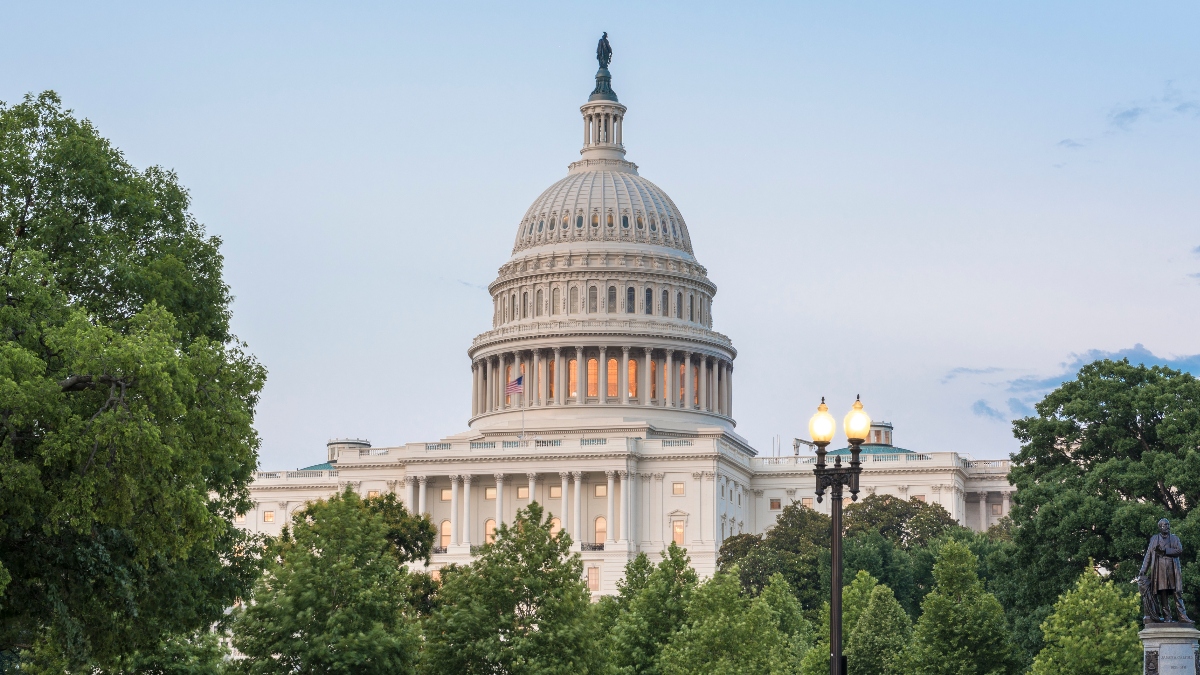After much discussion amongst Congress members, the President Trump-backed ‘Big Beautiful Bill’ appears to be getting closer to becoming a law. With so many elements included in the legislation, it can be tough to keep up with all the potential changes that it could lead to. One group of Americans that may be particularly concerned? Older Americans, who are often on a fixed budget, and want to know what it may mean for their finances. Below you’ll find information on how the Big Beautiful Bill could affect seniors, plus when these changes would take place.
What is the ‘Big Beautiful Bill’?
On May 22, 2025, the House of Representatives passed The One Big Beautiful Bill Act, also known as the Big Beautiful Bill. The more than 900-page-long piece of legislation covers everything from tax cuts to foreign policy.
It has undergone several revisions since it was drafted earlier this year, but the main goals of the bill have remained the same. One of the objectives has been to transform U.S. economics. and reform the budget, which could have a widespread impact on the finances of many citizens.
Older Americans in particular could be affected by many of the provisions in the legislation. Keep reading to learn more about what changes are likely in store.
What’s in the Big Beautiful Bill for seniors?
Medicaid cut-backs
Medicaid is a public health insurance program that allows low-income Americans to get health coverage for free or at a lower cost. People above the age of 65 can qualify if they meet the income requirements. (Medicaid also can help individuals who are legally blind, have disabilities, are pregnant and have children).
Under the “Big Beautiful Bill,” nearly $1 trillion would be cut from the program, reports USA Today, and more than 11.8 million could lose coverage over the next decade.
As part of the legislation, states would be required to do eligibility checks twice a year to ensure anyone covered under the program qualifies. This will also mean setting up a system to verify people’s employment or exemption status.
A work requirement would also be put in place before anyone can receive coverage. If you don’t qualify for an exemption, like having a disability or being a caregiver, you must work at least 80 hours a month. (This applies to childless individuals or parents whose children are older than 13).
Currently, Georgia is the only state to have a work requirement for Medicaid recipients. But the new bill would mean anyone considered “able-bodied” (not certified as physically or mentally unfit for employment) has to work those hours to continue being covered under Medicaid.
New student loan repayment plans
Another change that could impact Americans’American’s finances: a revamping of student loan repayment plans and how deferment works, reports TheHill.com.
First, all income-based repayments would be eliminated, providing borrowers with only two options:
- Standard Repayment Plan. This option means people will be repaying back their loans via fixed monthly payments over a fixed 10-25-year period based on the amount borrowed.
- Repayment Assistance Plan. Like the income-based plans, borrowers would be expected to make payments based on their total adjusted gross income, ranging from 1 to 10 percent. Any unpaid interest that isn’t covered by the monthly payment will be waived.
Borrowers will also be required to make 30 years of payments (or 360 payments) under the second plan, which is an increase from the typical 20-25 years.
Here are some other changes:
- The elimination of the Grad PLUS loan program (for students in grad school)
- The end of subsidized loans for undergraduates
- Parent PLUS loans would be capped at $65,000 and would be ineligible for repayment programs
- More semester hours are required to be eligible for Pell Grants
Future and current borrowers would also see changes when it comes to repaying their loans during tough times. Under the Big Beautiful Bill, you would not be able to defer based on hardship or unemployment if your loan was disbursed after July 2026.
However, borrowers with existing or newly defaulted loans would have the option to rehabilitate their loans twice instead of just once. This process helps you get out of default by making nine consecutive, on-time payments.
New tax breaks
One perk older Americans could see with the passage of the bill: enhanced deductions that mean a big bonus for Social Security beneficiaries.
Americans aged 65 and older would be eligible for an additional deduction on Social Security income during the 2025-2028 tax years. A deduction lowers your taxable income before calculating what tax you owe.
The House has proposed $4,000 per eligible American, while the Senate bill makes that amount a little higher at $6,000.
Besides meeting the age requirement for eligibility, your adjusted gross income (AGI) would have to fall below the designated cap. This is $75,000 a year for single filers or a combined income of $150,000 for those who are married and filing taxes jointly.
This would be available whether you claim the standard deduction or decide to itemize, allowing seniors who qualify to maximize their tax break.
Housing credits
The Senate bill has also proposed investing more of the budget in affordable housing through the Low-Income Housing Tax Credit. This federal program provides incentives to those in the private sector to develop and rehabilitate housing. Developers who agree to rent a portion of their units to those on a fixed income get tax credits, while people on a budget are able to afford a place to live.
That can also mean more money to support the Section 202 program, which provides non-profits with funding to create affordable housing for low-income individuals who are 62 and older. This often includes supportive services like meals, transportation and healthcare assistance to help seniors live independently.
What’s next for the bill

After passing in the House, the bill was sent to the Senate where it passed (after some modifications) on July 1, 2025. Now it has returned to the House for final approval. President Donald Trump has been pushing for congress to pass The Big Beautiful Bill by July 4, but it remains uncertain as to whether that will happen.
If the bill does become a law, Americans won’t see changes immediately taking place. For example, states would have until January 1, 2027 to begin the eligibility verification checks for Medicaid.
The new student loan repayment plans also wouldn’t go into effect until July 2026. Though the tax deduction would include the 2025 tax year, seniors won’t get a chance to claim it until filing taxes next year.
Further clarification on deadlines will likely be provided should the bill be signed by the President.






